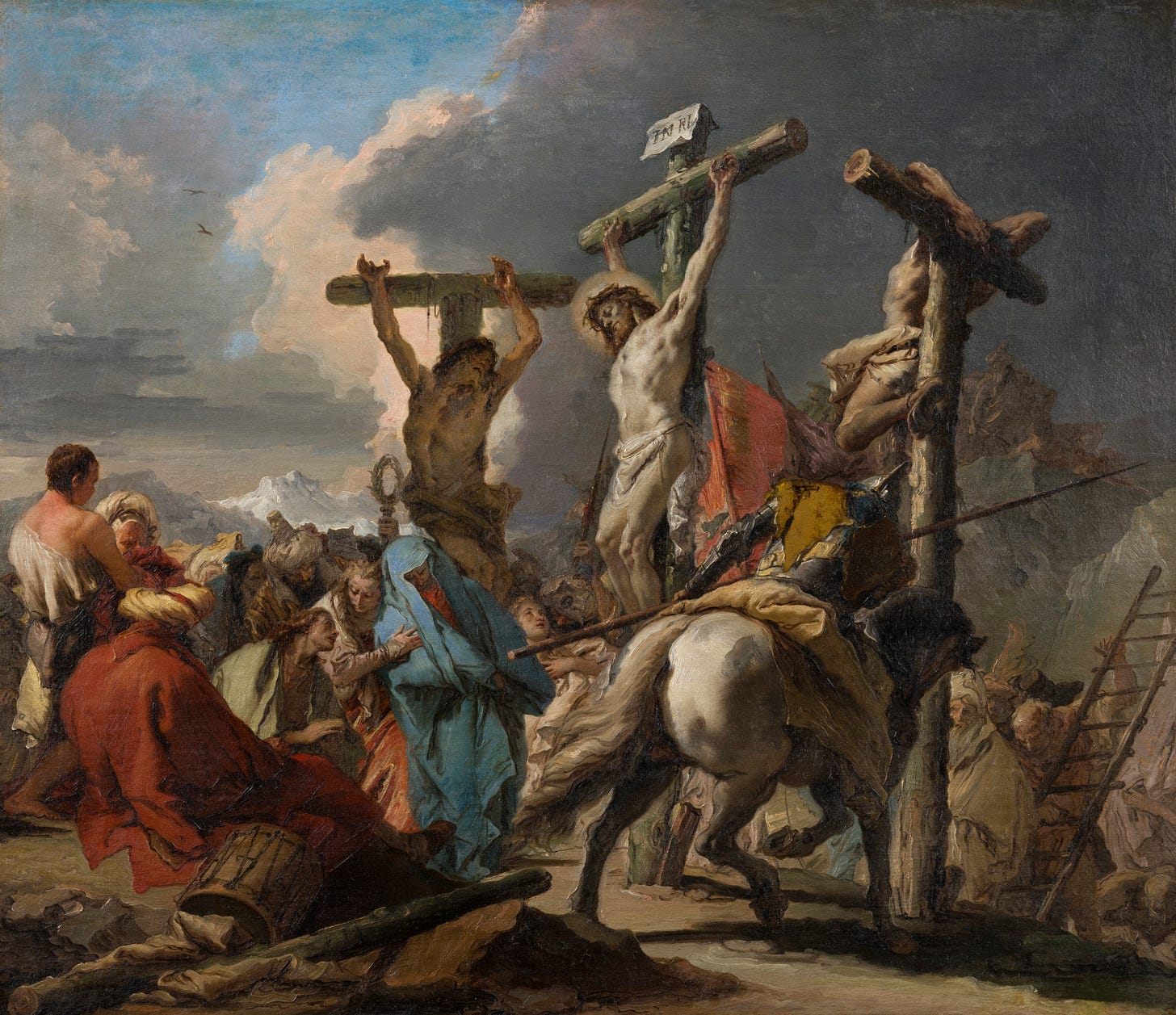Reflections on Republic, Book II
Parallels between Socrates's mistreated, magnanimous man and Jesus Christ.
In Glaucon's thought experiment (Republic, Book II), two antipodes are presented: first, the absolutely unjust man who is believed to be perfectly just; and second, the purely just man who is believed to be wholly unjust and persecuted accordingly. Regarding the latter, "They'll say that a just person in such circumstances will be whipped, stretched on a rack, chained, blinded with fire, and, at the end, when he has suffered every kind of evil, he'll be impaled. . ." (361e). Although Plato was writing about 400 years before Jesus Christ, the denigration, torture, and execution of the blameless man strikes me as analogous to the story of Christ and his crucifixion.
Were the Christians inspired by Plato in their theory of justice?
Christ’s ethical character is remarkably—at least, I’m remarking on it—the man described by Glaucon: the kind that Plato (via the voice of Socrates) goes on to posit is genuinely better off than the unjust man who profits materially from his injustice.
On a somewhat related note, though Adeimantus is ostensibly arguing for the superiority of injustice over justice, he seems to cede a lot of ground to Socrates. Adeimantes basically admits the superiority of justice through his admission that it is "someone of godlike character who is disgusted by injustice" (366d). If it is the case that the godlike man regards justice as a good and despises injustice as an evil, and god is superior to man, then it must be superior to be just and disgusted by injustice than vice versa: better to be godlike than manlike.


